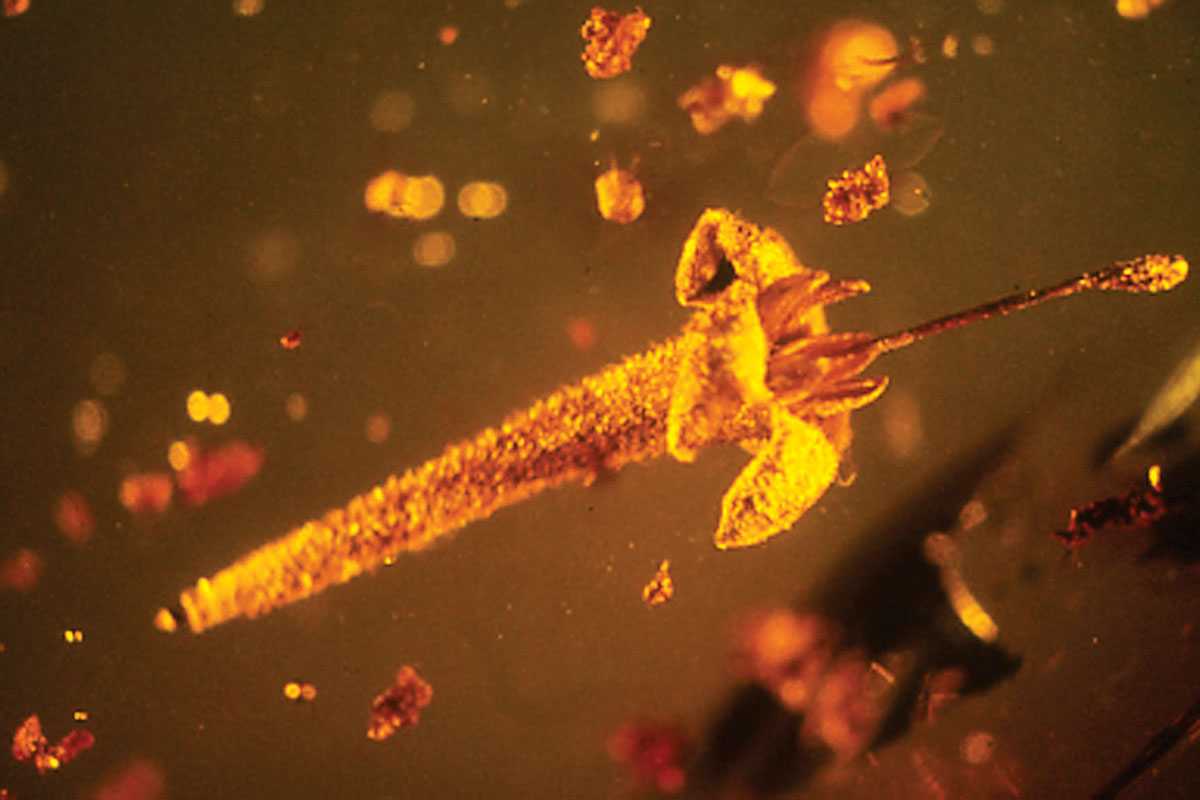Prehistoric coffee ancestor found in amber. Fossil flowers found perfectly preserved in amber represent a new plant species that’s a 45-million-year-old relative of coffee, according to a new research reported by Discovery News. Named Strychnos electri, after the Greek word for amber (electron), the flowers represent the first-ever fossils of an asterid, which is a family of flowering plants that not only later gave us coffee, but also sunflowers, peppers, potatoes, mint — and deadly poisons.
Scientists discovered the flower in a cave in the Dominican Republic along with a treasure trove of insects preserved in amber.
Amber is fossilized tree resin, and pinning an exact date on it is extremely difficult. In a paper published in Nature Plants, biologists George Poinar and Lena Struwe carefully used two methods of dating the material to suggest that this flower might have been fossilized as early as 45 million years ago or as late as 15 million.
They came up with such a broad spread of dates largely because we still don’t have very many fossils from these kinds of plants, which makes precise dates difficult.
The researchers had to date the flower by proxy by examining other life forms found in the amber cache, including the common single-celled organisms known as foraminifera and coccoliths.
There are distinct evolutionary and population changes in foraminifera and coccoliths over time, and paleontologists often use these tiny animals to place fossils during specific geological periods. What’s certain is that this flower bloomed long before the age of apes during the mid-Tertiary period.
The flowers, described in the journal Nature Plants, belong to the dark side of the family.
They are in the genus Strychnos, which ultimately gave rise to some of the world’s most famous poisons, including strychnine and curare.
The prehistoric flowers’ attractiveness and incredible state of preservation belie their toxicity.


















